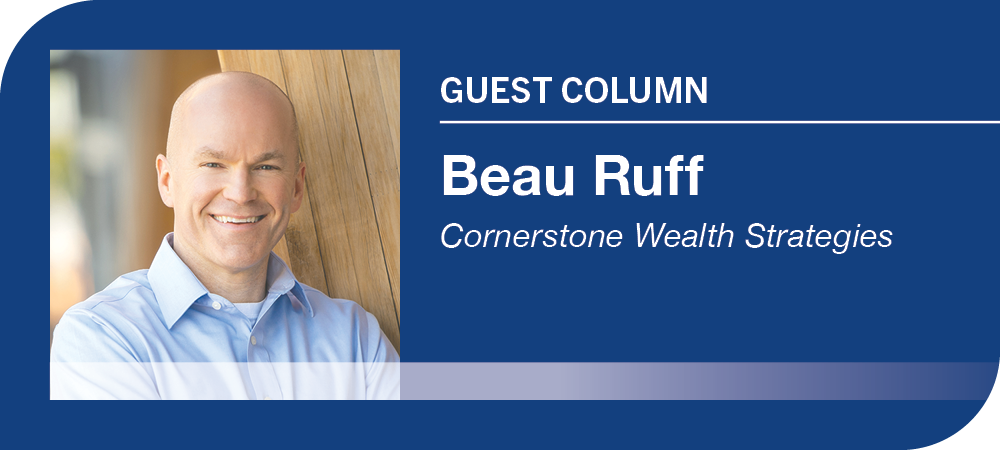
Home » Teens can cause car wrecks but it’s parents who pay
Teens can cause car wrecks but it’s parents who pay

May 12, 2021
From time to time, it is important to take stock of our own personal liability exposure and find ways to mitigate it.
Liability exposure can creep into our lives in subtle ways that can have profound effects on our financial security. One such way that a person can expose himself or herself to additional liability is through the “family car doctrine,” which rests on the broader legal liability concept of “respondeat superior.”
Let’s break it down.
What is the potential liability? Let’s set the scene.
A parent has a teenager who is a licensed driver living at home.
First, we have to assume that the teen causes a car crash through the teen's negligence. In other words, the teen is in a car crash and the fault for the accident lies with the teen.
How can a parent become liable for a teen’s liability?
The Latin phrase “respondeat superior” roughly translates to “the master answers for the servant.”
It is a legal relationship more fully explored in the broader legal concept of “agency.” But, basically, where a person (the teen) is acting for the benefit of a boss or master (the parent), the liability of the teen becomes the liability of the parent.
In Washington, to apply the family car doctrine and hold the parents potentially liable for the acts of the teen the following factors must be met:
(1) The car is owned, provided or maintained by the parent (2) for the customary conveyance of family members and other family business (3) and at the time of the crash the car is being driven by a member of the family for whom the car is maintained, (4) with the express or implied consent of the parent.
Legal eagles can reference Kaynor v. Farline, 117 Wn.App. 575, 72 P.3d 262 (2003).
In a sense, this result can be unsurprising.
If a parent provides a car for a minor child and provides the insurance for the family, then the teen’s negligence (and resulting liability) should be covered by the family’s insurance policy.
The doctrine is more pernicious than that; it provides that the parent is actually liable – not just that the insurance is liable to pay the claim. This means, that to the extent insurance coverage is insufficient, the parents are personally liable for the injury caused by the teen.
This extends beyond just minor children living at home. If you have an adult child driving a car provided by a parent, that parent risks personal liability for the injuries caused by the adult child’s driving.
Perhaps a parent has a child away at college.
The parent owns the car but allows the child to use it. The parent might insist that the child both obtains and pays his or her own insurance. A child might comply, only insure the car based on state mandatory minimums, potentially leaving them without enough coverage in an incident.
Under this scenario, if the college student causes a crash, there is the potential for parental liability without any coverage by the parent’s insurance. And, given the low insurance coverage under the student’s insurance policy, the parents might then face real financial liability.
Let’s say that you can show evidence to rebut the application of the family car doctrine and avoid liability.
Do you even want to be put in the situation where you are required to do so? In other words, isn’t it better to err on the side of caution and to take affirmative steps to mitigate liability through action?
What might that action look like? The parent could decide it’s better to simply gift the vehicle to the child to take the parents’ names off the car. The more the parent can divest himself or herself from ownership, the better to thwart the application of the doctrine.
The parent should perhaps provide no rules for the use of the car (no control over the use of the car). The parent might make it clear that the child need not ask permission to use the car or how to use the car.
Some parents might be put off by these rules for minor children but consider them appropriate for adult children.
Looking to your insurance coverage also can help to mitigate liability exposure. One way the parent can mitigate risk is by increasing liability limits or adding an umbrella insurance policy. Talk to your insurance agent about potential coverage options.
Note: the family car doctrine does not apply to bicycles. Accordingly, this presents parents with a safe form of transportation to avoid liability through agency laws. Safer for liability exposure…but perhaps less satisfying to the child.
Beau Ruff, a licensed attorney, is the director of planning at Cornerstone Wealth Strategies, a full-service independent investment management and financial planning firm in Kennewick.
Transportation
KEYWORDS may 2021





